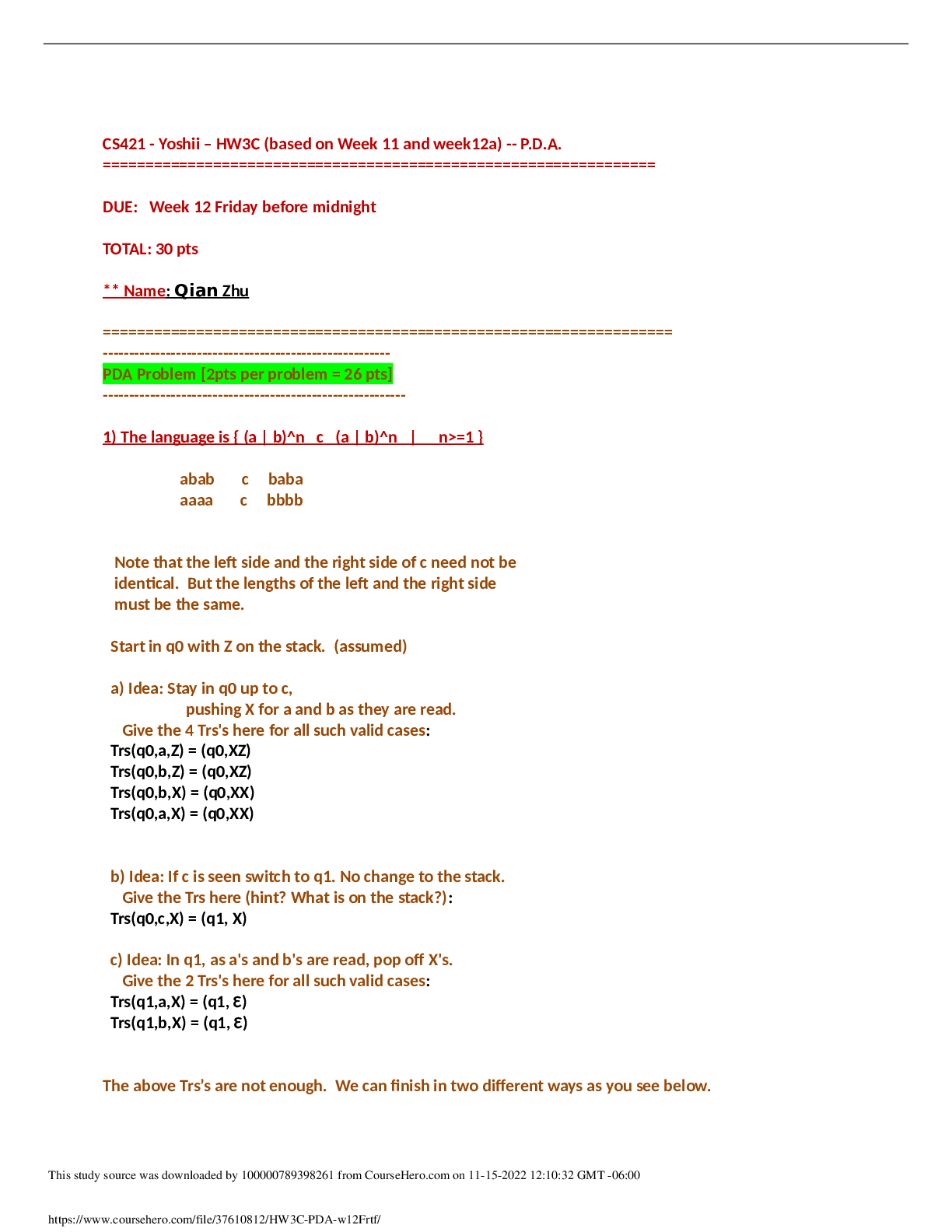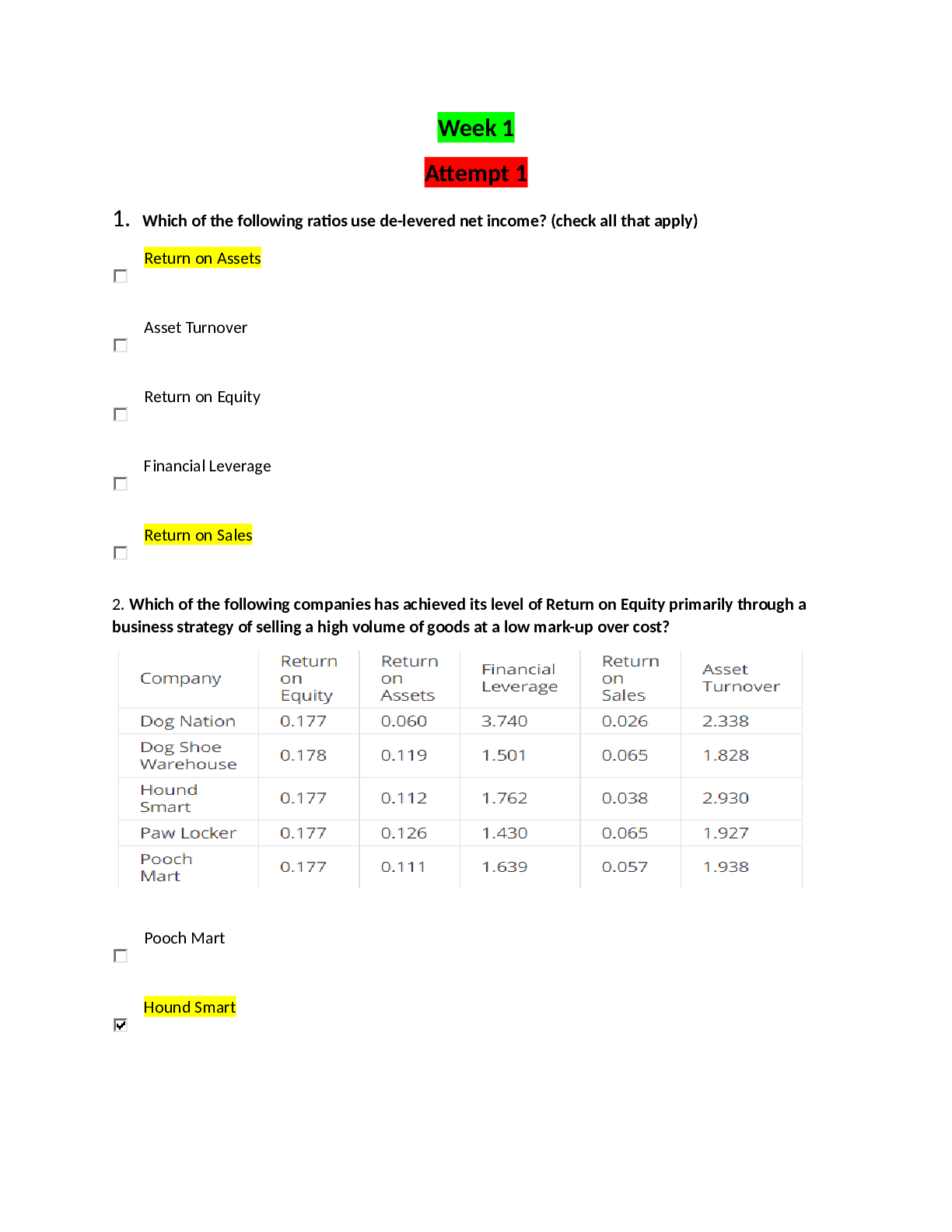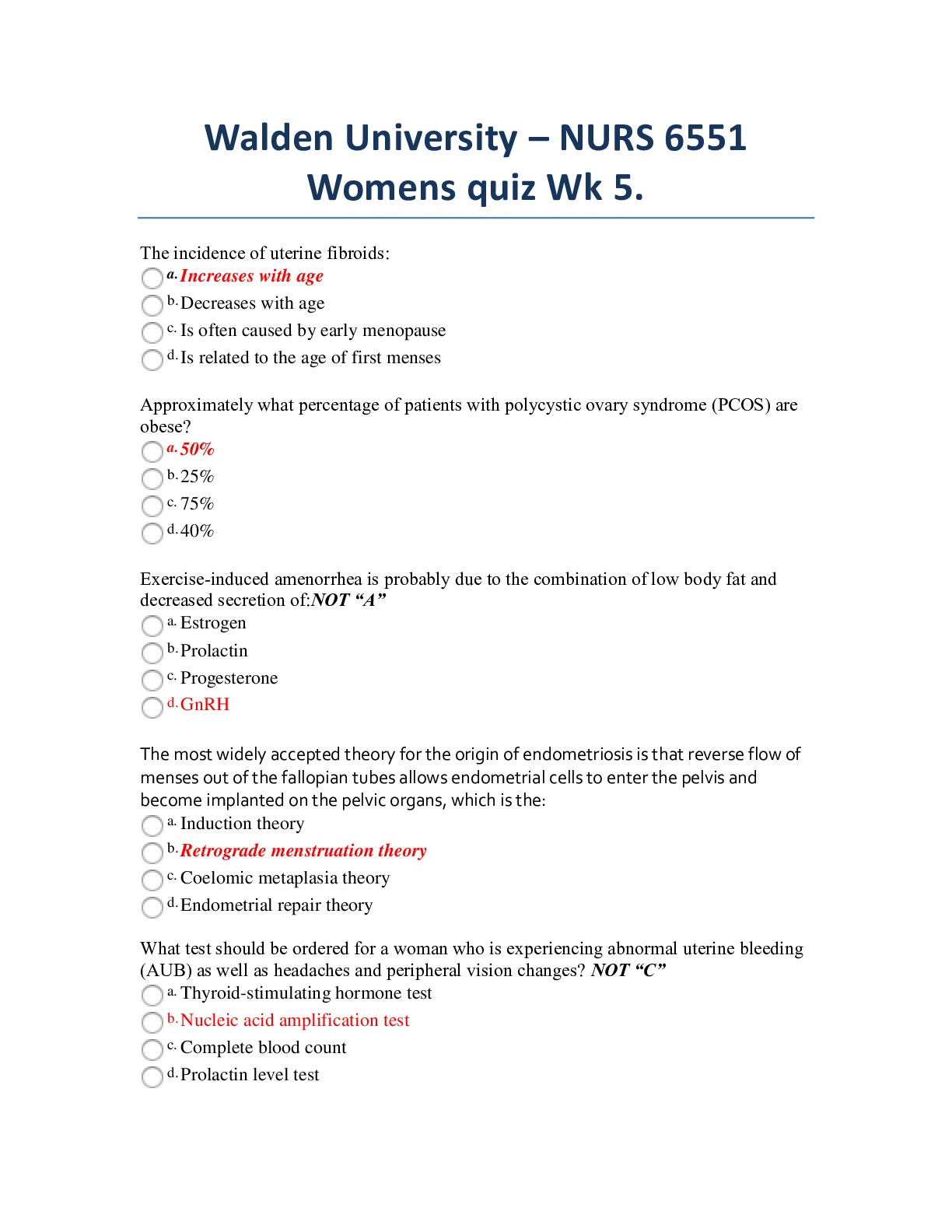*NURSING > QUESTIONS & ANSWERS > Walden University – NURS 6551 week 5 Womens quiz Wk 5. (All)
Walden University – NURS 6551 week 5 Womens quiz Wk 5.
Document Content and Description Below
Walden University – NURS 6551 Womens quiz Wk 5. The incidence of uterine fibroids: a. Increases with age b. Decreases with age c. Is often caused by early menopause d. Is relate... d to the age of first menses Approximately what percentage of patients with polycystic ovary syndrome (PCOS) are obese? a. 50% b. 25% c. 75% d. 40% Exercise-induced amenorrhea is probably due to the combination of low body fat and decreased secretion of:NOT “A” a. Estrogen b. Prolactin c. Progesterone d. GnRH The most widely accepted theory for the origin of endometriosis is that reverse flow of menses out of the fallopian tubes allows endometrial cells to enter the pelvis and become implanted on the pelvic organs, which is the: a. Induction theory b. Retrograde menstruation theory c. Coelomic metaplasia theory d. Endometrial repair theory What test should be ordered for a woman who is experiencing abnormal uterine bleeding (AUB) as well as headaches and peripheral vision changes? NOT “C” a. Thyroid-stimulating hormone test b. Nucleic acid amplification test c. Complete blood count d. Prolactin level test The least variation in menses occurs between the ages of: a. 30–50 b. 40–50 c. 12–20 d. 20–40 Which of the following is associated with increased risk of endometriosis? a. Late menarche b. Long menstrual cycles c. Early menarche d. Late menopause Why are women with polycystic ovary syndrome (PCOS) at a threefold increased risk of developing endometrial cancer? NOT “A” I THOUGHT C a. The reduction in estrogen causes excess progesterone to build up. b. Menstrual bleeding is irregular and unpredictable. c. Insulin resistance stimulates the production of androgens. d. Estrogen regularly stimulates the endometrium. In women of reproductive age, the most common cause of a bleeding pattern that is suddenly different is: a. An increase in estrogen b. A reaction to a change in eating or exercise habits c. Adrenal hyperplasia d. A complication of pregnancy Hyperandrogenism in reproductive-age women is most frequently associated with: a. Hyperthyroidism b. Polycystic ovary syndrome c. Ovarian cancer d. Diabetes [Show More]
Last updated: 2 years ago
Preview 1 out of 2 pages

Buy this document to get the full access instantly
Instant Download Access after purchase
Buy NowInstant download
We Accept:

Reviews( 0 )
$5.00
Can't find what you want? Try our AI powered Search
Document information
Connected school, study & course
About the document
Uploaded On
May 30, 2020
Number of pages
2
Written in
Additional information
This document has been written for:
Uploaded
May 30, 2020
Downloads
0
Views
75






.png)
.png)
.png)
.png)
.png)
.png)
.png)



